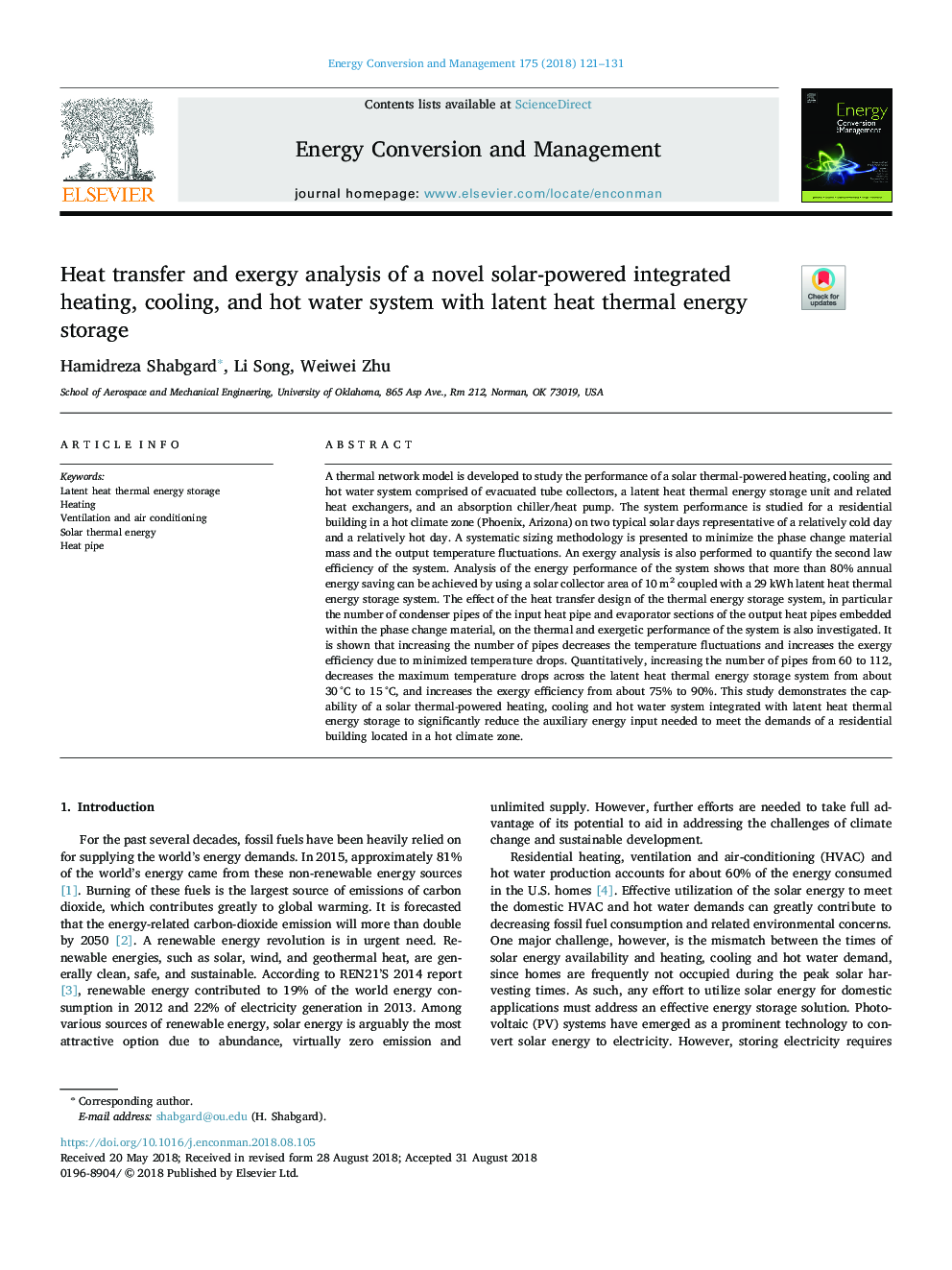| Article ID | Journal | Published Year | Pages | File Type |
|---|---|---|---|---|
| 10140171 | Energy Conversion and Management | 2018 | 11 Pages |
Abstract
A thermal network model is developed to study the performance of a solar thermal-powered heating, cooling and hot water system comprised of evacuated tube collectors, a latent heat thermal energy storage unit and related heat exchangers, and an absorption chiller/heat pump. The system performance is studied for a residential building in a hot climate zone (Phoenix, Arizona) on two typical solar days representative of a relatively cold day and a relatively hot day. A systematic sizing methodology is presented to minimize the phase change material mass and the output temperature fluctuations. An exergy analysis is also performed to quantify the second law efficiency of the system. Analysis of the energy performance of the system shows that more than 80% annual energy saving can be achieved by using a solar collector area of 10â¯m2 coupled with a 29 kWh latent heat thermal energy storage system. The effect of the heat transfer design of the thermal energy storage system, in particular the number of condenser pipes of the input heat pipe and evaporator sections of the output heat pipes embedded within the phase change material, on the thermal and exergetic performance of the system is also investigated. It is shown that increasing the number of pipes decreases the temperature fluctuations and increases the exergy efficiency due to minimized temperature drops. Quantitatively, increasing the number of pipes from 60 to 112, decreases the maximum temperature drops across the latent heat thermal energy storage system from about 30â¯Â°C to 15â¯Â°C, and increases the exergy efficiency from about 75% to 90%. This study demonstrates the capability of a solar thermal-powered heating, cooling and hot water system integrated with latent heat thermal energy storage to significantly reduce the auxiliary energy input needed to meet the demands of a residential building located in a hot climate zone.
Related Topics
Physical Sciences and Engineering
Energy
Energy (General)
Authors
Hamidreza Shabgard, Li Song, Weiwei Zhu,
